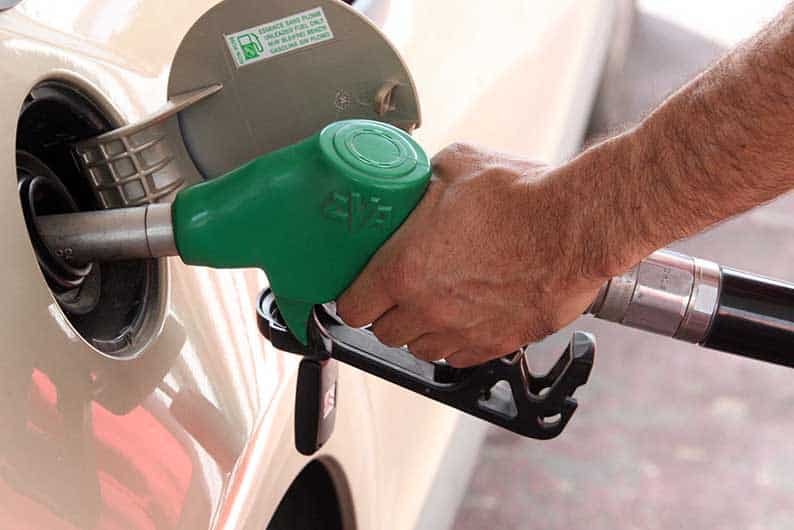By George Pirishis
In an effort to contain costs from the rising fuel prices, the government has decided to temporarily reduce the excise tax on petrol and diesel by 7 cents per litre, which will increase to 8.3 cents per litre including VAT. This was announced by the Minister of Finance, Constantinos Petrides, after yesterday’s Cabinet meeting. At the same time, as Petridis said, the excise tax on heating oil will be reduced by 6.4 cents including VAT.
As the Finance Minister said, Cyprus becomes a member state of the European Union with the lowest rates of excise duty and the maximum level allowed by the European acquis. It is worth noting that the temporary reduction in the relevant bill is expected to take effect from March 8 until June 1, 2022.
As for the financial costs of these proposals approved by the Council of Ministers, Petrides said that this ranges to an additional €40 million approximately, adding that there are still €150 million in other energy-saving programmes related to the replacement of appliances in vulnerable groups, projects related to energy efficiency upgrades (photovoltaics) for households.
“We have proven as a government that we are following developments very closely and within the framework of what is possible and we will always adjust our policies in order to help both society and the economy,” the Finance Minister concluded.
At a time when energy prices have long been on the rise, the government, under pressure from consumers and relevant bodies, has proceeded to reduce the excise tax on petrol and diesel.
Already the price of Brent oil has exceeded $110 per barrel, setting a record for a decade, while futures contracts have jumped by more than 7 per cent.
Market players told the paper that the main problem that seems to have been present so far is the maintenance of the excise tax on fuel while at the same time prices have been on a continuous upward trend and therefore government revenues are showing an increase. Indicatively, based on the data of the Cyprus Consumers Association, in the period May 2021 to January 2022, the additional state revenue from VAT, due to increased prices, amounted to €15.3 million.
The newspaper also contacted market players in relation to the issue of rising fuel prices who indicated that the reduction of VAT on the price of fuel is the only solution to relieve consumers from the rising cost of fuel prices.
Star Oil executive chairman George Petrou estimated that fuel prices will continue their upward trend in this climate of uncertainty that has been created as a result of the Russian-Ukrainian crisis. Moreover, Petrou explained that the measure to reduce VAT on gasoline and oil prices is a temporary solution to the upward trend in fuel prices as the government’s revenues are increasing while the costs are being passed on to consumers. Regarding fuel stocks, Petrou said that there is no issue about this since, as he explained, three-quarters of the imports come from Greece while one quarter comes from Israel.
In the same pattern of statements were the comments of the President of the Cyprus Consumers Association, Marios Droussiotis, who stressed that the government’s revenues have increased due to the fact that VAT remained the same while consumers are paying these increases.
“It is therefore clear that the government should reduce VAT as was done in the case of electricity to ease the burden on consumers,” he said. As far as the price of electricity is concerned, Drusiotis indicated that in the tariffs of Electricity Authority of Cyprus for consumers, 24 per cent of the final bill is for the cost of greenhouse gas emissions while 19 per cent VAT is added to the final amount, sharply increasing the final bills for consumers.







Click here to change your cookie preferences